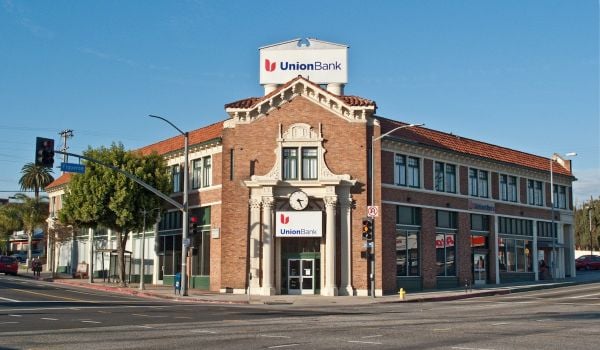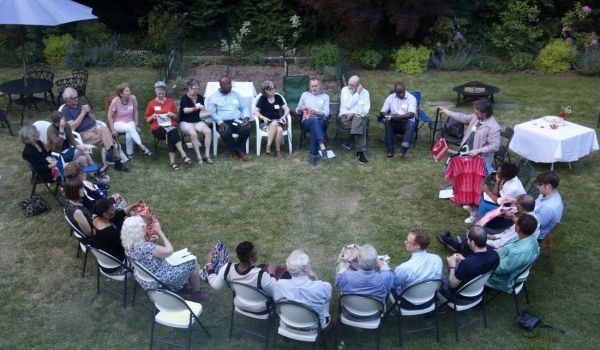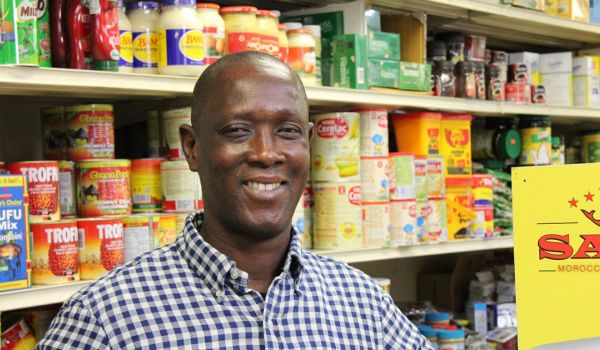Maine has a burgeoning refugee and immigrant population with a keen entrepreneurial spirit that is getting attention from a Lewiston, Maine, CDFI called Genesis Fund. Many originally hail from Somali regions or nearby countries due to chronic conditions forcing myriads into camps or displacement for over 30 years.
According to the UN Refugee Agency, more than 650,000 Somali were displaced due to climate issues in the first eight months of 2020 alone. Lewiston itself had a downtown poverty rate of 46% in 2000 after rural flight issues, but in 2001 began to turn its troubles around with the resettlement of 1000 Somali refugees from across the U.S. It soon became one of the fastest-growing communities in Maine.
John Egan, the chief lending officer at Genesis Fund, first saw the potential for developing a new loan product when working with Djibouti businessman and former accountant Yassin Moussa on a multi-family housing purchase while at his former employer, Coastal Enterprises Inc. (CEI). He found that members of the immigrant Muslim community were looking to borrow money for a fee, rather than accruing interest. When he transitioned to Genesis Fund a year and a half ago, he introduced fee-based lending there as well.
Egan spoke to us about the benefits of fee-based lending and what it will take to get big banks and other financial institutions on board.
How do the interest-free loans work?
It’s based on a fee, calculated to account for the costs of the loan from the lender, the CDFI. The fee is clearly explained and transparently illustrated to the borrower. Most of the population that will use this product are immigrants to the United States, although not exclusively.
This community has very strong entrepreneurial skills, but no access to credit markets, because community banks and credit unions charge interest. A CDFI can serve the community so immigrant populations can build wealth and prosper.
In your talks with other institutions, how do they view fee-based lending?
That’s been as much a part of my work with this product as the actual lending. I am talking to community banks, loan departments, even bank presidents. Banks agree that they would like to figure it out, but have not yet. Part of the challenge is how to service a loan structured at 0%.
Their software and loan management systems are not set up to handle a fee instead of an interest rate. So, I say to the bank president, ‘That’s a software problem. You should be able to fix that.’ We’re trying to get local banks to set up a small parallel loan portfolio.
And our little CDFI figured out how to modify our loan software, so why can’t they? I am not going to take no for an answer.
Well, from an operations standpoint, financial institutions have proprietary systems, but employ additional integrations or third-party applications all the time, don’t they?
Yes. I understand those systems are hard to change and there are all sorts of (regulatory) reporting from loan management systems. My suggestion is rather than trying to fit the loan into software that won’t accept it, create a separate pool until you have enough volume to justify the software upgrade. We find most banks and credit unions are interested; they want to serve a growing population within their community.
I’m focused on getting them to offer a home loan mortgage so that these entrepreneurs can buy a house – controlling where you live. That is a classic American value, and that’s why most of these immigrants are here. So let’s make it happen.

John Egan (photo courtesy of John Egan)
How have civic leaders viewed this?
Initially, with a lot of skepticism, even questioning the legality. I laughed out loud when somebody asked me that 8-10 years ago. Municipalities now get it, they’re understanding and supportive.
Does it really differ that much from a risk perspective?
Financially it’s pretty much the same, if not exactly the same for the lender. The income, risk, security collateral – those are all the same. It’s just a fee instead of interest, and if they pay off the loan early they pay fewer fees. It works the same way.
So banks aren’t taking a loss on loan income and deposit structures on their own balance sheets.
That’s right. CEI made fee-based loans for over 10 years and they have zero losses, Genesis Fund has only done it for about a year and a half. We have only a handful of loans, but so far they’ve performed well, so there’s no additional risk — the underwriting is the same.
So what are the end goals as far as collaboration?
We collaborate with CEI on all kinds of things. We also collaborate with banks on subordinated loans on an investment – let’s say a six-unit apartment renovation — have the bank do, say, 60% of the loan, Genesis Fund does 30%, the borrower puts in 10% — the bank can see how it works, and they’re not taking much risk because they would be in a senior position over the CDFI.
So you want to show proof of concept?
That’s right. And that’s a very common role that CDFIs have carried out with local institutions, proof of concept.
We also provide technical assistance, included in the fee. We work with borrowers before the loan and after closing. I’m hoping to go to the mosque where Yassin’s community gathers to explain how this can work for his community. Everyone wants it to be a success. So preparing borrowers to understand is as important as the loan.
I’m not going to give up until we have a bank that’s offering a fee-based loan or home mortgage, because that’s what needs to happen.
This story is part of our series, CDFI Futures, which explores the community development finance industry through the lenses of equity, public policy and inclusive community development. The series is generously supported by Partners for the Common Good. Sign up for PCG’s CapNexus newsletter at capnexus.org.
Hadassah Patterson has written for news outlets for more than a decade, contributing for seven years to local online news and with 15 years of experience in commercial copywriting. She currently covers politics, business, social justice, culture, food and wellness.
















